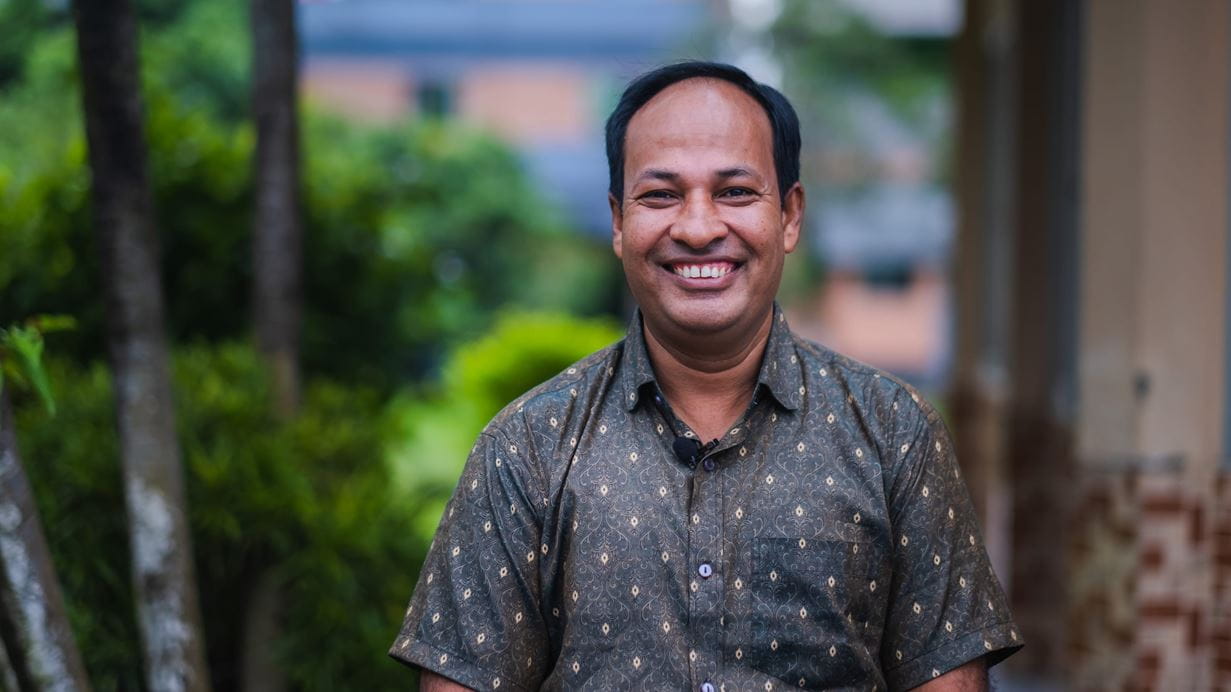The family has faced some very challenging times. ‘Some years ago, when my mother-in-law was diagnosed with cancer,’ says Rheka, ‘our financial situation became terrible. My son was little then, so I could not give time to the store [that the family ran to earn a living]. With no other choice of work, my husband took a job as a labourer for a water company. Through that, he made some good connections and started to supply water – on a small scale – using a rickshaw.
‘We did not have a motorised bike at that stage and we only had a few containers to transport the water. My eldest son was in the 8th grade then – 14 years old. He used to help by carrying up to ten 20-litre water bottles in a foot-powered, engineless rickshaw [driven with a bicycle without a motor]. He did a lot of hard work! That’s where our business started. Now it is helping to feed our family and to educate our children.’
Bible studies and business building
Shushanto and Rheka came into contact with Tearfund through a Bible study group at their church. Along with Bible-based training, they received financial support to buy 100 containers to carry the water supply. They have also become part of a group that saves together so that members can take easy-to-repay loans. This has made it possible for them to buy a motorised bike (van) to carry the water.
‘I think I would not be able to meet the family's food and clothing without this help and I would not be able to educate my son,’ says Rheka. ‘For a year, my husband has not been able to get any other work, so we are surviving on this water supply business.’
Shushanto and Rheka speak openly about their faith and the lessons they have taken from the Transforming Communities (also known as CCT) Bible studies. And they are not the only ones who have seen the fruit of this work.
Transforming communities through the local church
Pastor James Asit Biswas is one of the pastors at their church. Since he first came into contact with Tearfund, he’s been instrumental in helping to see the CCT/Transforming Communities training and support implemented in forty churches so far, with plans to increase that number.
















